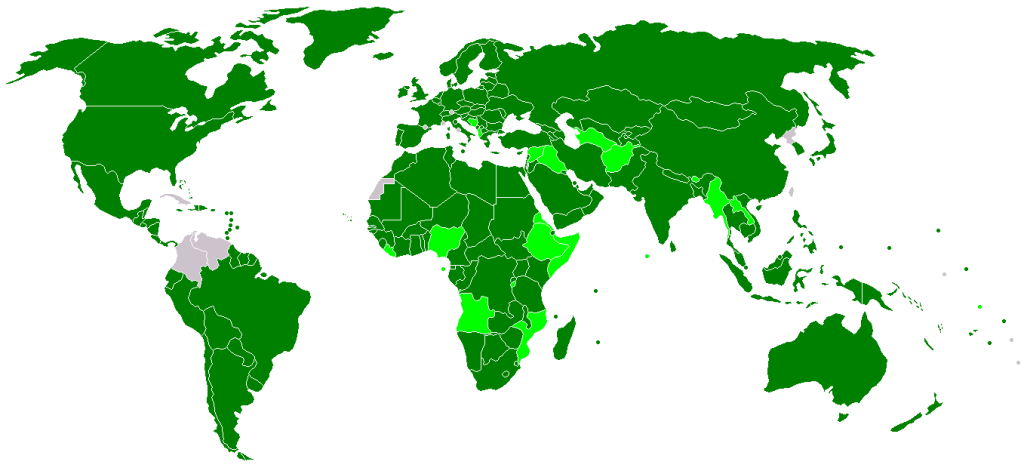
Written by Morten Jerven, Associate Professor, Noragric.
In 2013 I published the book ‘Poor Numbers’. In this book, I pointed out that we know far less than we like to believe about income and growth. The figures found in the databases of the World Bank, and that are served up by the press via International Monetary Fund (IMF) reports, are largely based on conjecture.
This is an uncomfortable truth: these figures form the basis for important economic decisions such as whether countries gain access to extended funding, or whether countries are applauded or rebuked for good or bad economic growth. When such decisions are made, guidelines are provided by variables such as the proportion of Gross National Product (GNP) that is comprised of debt, or the extent of economic growth in recent years. The validity of such decisions, which are justified by reference to precisely these numbers, depends on these numbers being based on reality.
What are presented as hard cold facts are far softer and based more on conjecture than one would believe. One Sunday afternoon in April in Abuja, Nigeria, the Director of the National Bureau of Statistics in Nigeria, stepped up to the podium at the Hilton Hotel and announced new GDP figures. When he stepped down from the podium, Nigeria’s GDP had increased by 89 percent. Three years earlier, the same happened in Ghana. New GDP estimates showed that Ghana’s economy was almost twice as large as it was previously considered. Decisions taken on the basis of yesterday’s figures suddenly emerge as less reliable.
I have researched how economists arrive at these numbers since I started on my PhD in 2005, and one of the things I was interested in finding out was just how the World Bank and the IMF handled these numbers. Why do they sometimes report the same numbers used at the national level, and why are these figures sometimes variable? My inquiries were either flatly rejected, ignored or I was informed that they simply did not have an overview of this. At first, I thought this reluctance to provide information was a deliberate strategy. Eventually I realized that what they said was true: they simply did not keep track of these matters. This has also been a cause of concern for the IMF’s leaders. In 2013, the IMF Board decided an investigation was required into the way these figures are collected, and the system for deciding how some figures are considered current/useable whilst others are adjusted or rejected. The Board was unsure if they were making decisions on sound bases, and whether the facts that they were relaying to the rest of the world were properly verified. The task was given to the IMF’s own Independent Evaluation Office. In turn, they called me and asked if I could help.
The final report, which includes my evaluation, was made public just after the Easter holidays. IMF’s Director endorsed the recommendations of the evaluation. One of the shortcomings acknowledged was that the IMF has not been able to communicate that they do not, in fact, have the capacity to verify their figures on various countries. The fundamental problem, also acknowledged by Lagarde, is that whilst the IMF sends its economists to the countries on which they report, these economists are subject to conflicting incentives. The main task is to assess the countrys’ economic situation; the IMF Board requires answers on the basis of the macroeconomic figures. In a three-day visit to the country under investigation, the same economists are responsible for assessing whether these figures are correct. If the figures are wildly inaccurate, the economist has to choose between writing a report that says “I don’t know” or cooking up their own numbers. The path of least resistance is to sweep it under the carpet and say that the figures are good enough.
The users of the figures from the IMF’s databases, including the World Bank, have been under the false impression that these numbers have been quality controlled. Such users might hesitate to take official figures from Ethiopia or Belarus at face value, but when the same figures are found in the IMF database they gain credibility; whilst one may hesitate to take a sip from a bottle offered in a brown bag by a random person, one would perhaps be more willing to close lips around the spout of a bottle marked Coca Cola and glug away. The contents of the bottle are not, however, systematically quality controlled.
Also published in Klassekampen. Translated into English by Jayne Lambrou.

Morten Jerven is an Associate Professor at Noragric working within the themes of Global Change and International Relations. He has a monthly column in the Norwegian newspaper Klassekampen and a bimonthly column in Bistandsaktuelt.


